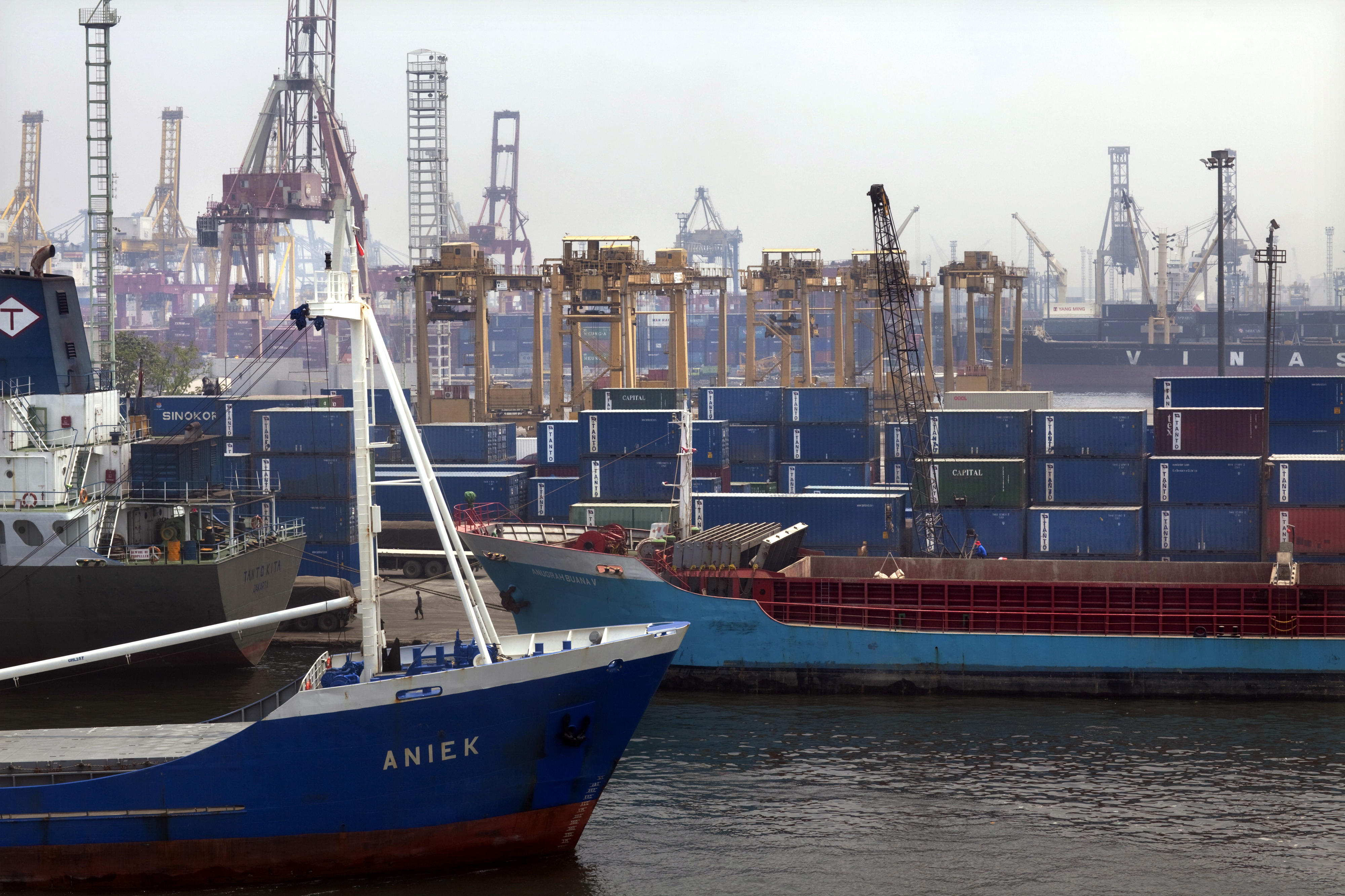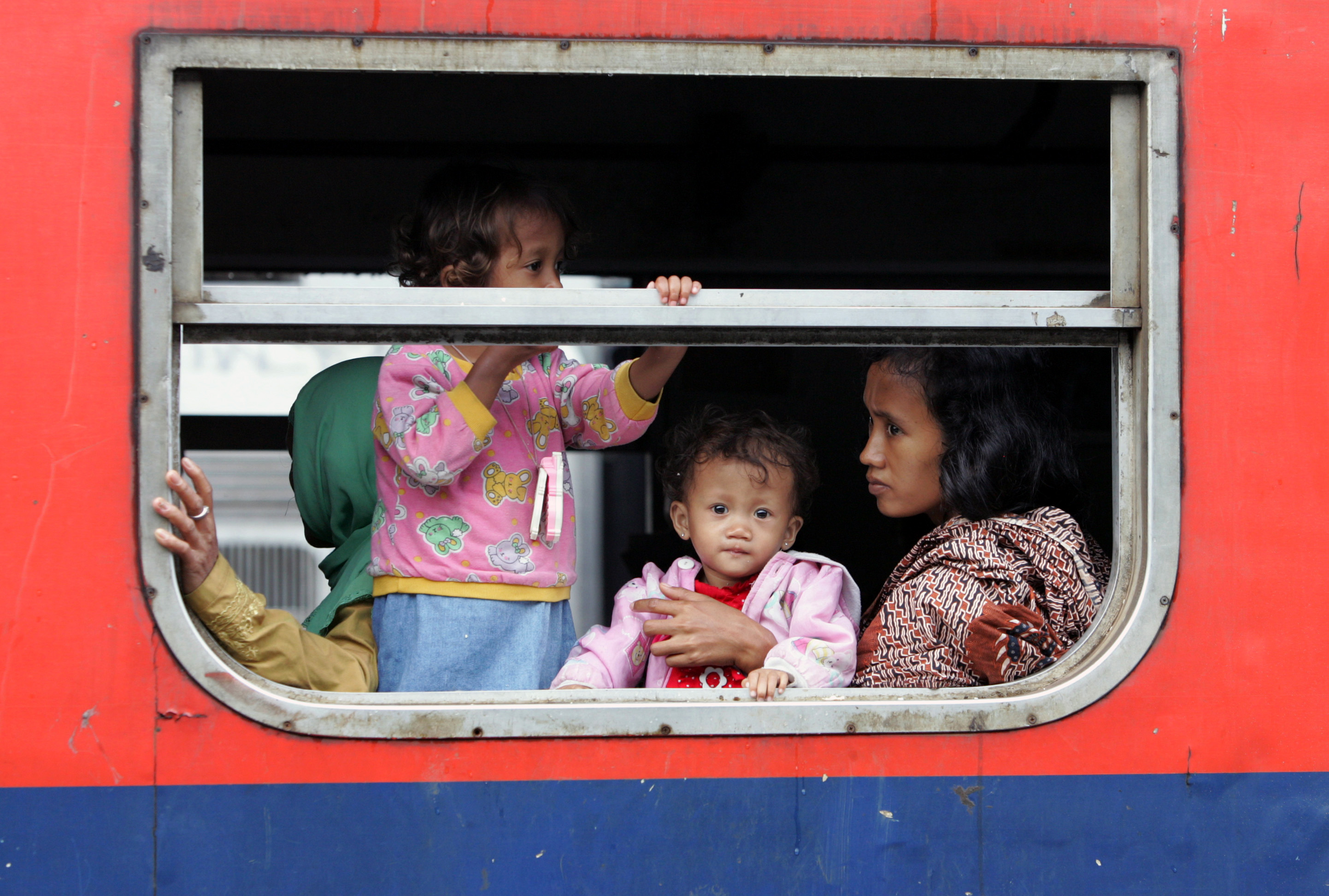Jakarta harbour
Copyright© Ute Grabowsky/photothek.net
Economic situation Making investment easier, developing local value chains
An economy in transition
However, numerous challenges remain. Industrial competitiveness and the private sector’s willingness to invest are hindered by frequent state interventions, ubiquitous corruption, cumbersome bureaucracy and long-neglected infrastructure, as well as by the shortage of skilled workers and a generally poor level of educational attainment. As a result, the country is far from being able to generate enough jobs to keep pace with population growth. Youth unemployment, which was 13.1 per cent in 2024, is relatively high.
The population displays a great deal of business initiative. The informal sector accounts for around 50 per cent of gross national income.
Mother with her children in a train compartment, Jakarta, Indonesia
Development potential
Until now, the Indonesian economy has been heavily reliant on exporting fossil and mineral resources (including coal, gas, copper and nickel), and agricultural crops like palm oil and rubber. Since the 1990s, industry has accounted for around 40 per cent of the country’s economic output.
The government has set itself the goal of bringing more foreign capital and expertise into the country, and developing value chains, which essentially means generating more profit domestically by processing products instead of merely selling raw materials.
Several packages of economic policy reforms have been launched with this aim in mind. The plans include multiplying the level of investment, creating incentives for start-ups, easing the requirements for work permits, lowering energy costs and making it easier to buy land. Regulations to restrict workers’ rights, for example with regard to minimum wages, social benefits and protection against dismissal, have met with strong criticism from trade unions.
Regional and international cooperation
With the creation of the ASEAN Economic Community (AEC), the 11 members of the Association of Southeast Asian Nations, including Indonesia, have affirmed their will to strengthen their regional cooperation.
A Partnership and Cooperation Agreement envisaging close political, economic and cultural cooperation between the European Union and Indonesia has been in place since 2014. In 2016, negotiations for a Comprehensive Economic Partnership Agreement (CEPA) began, which is scheduled to be concluded in 2025.
As at: 12/08/2025

